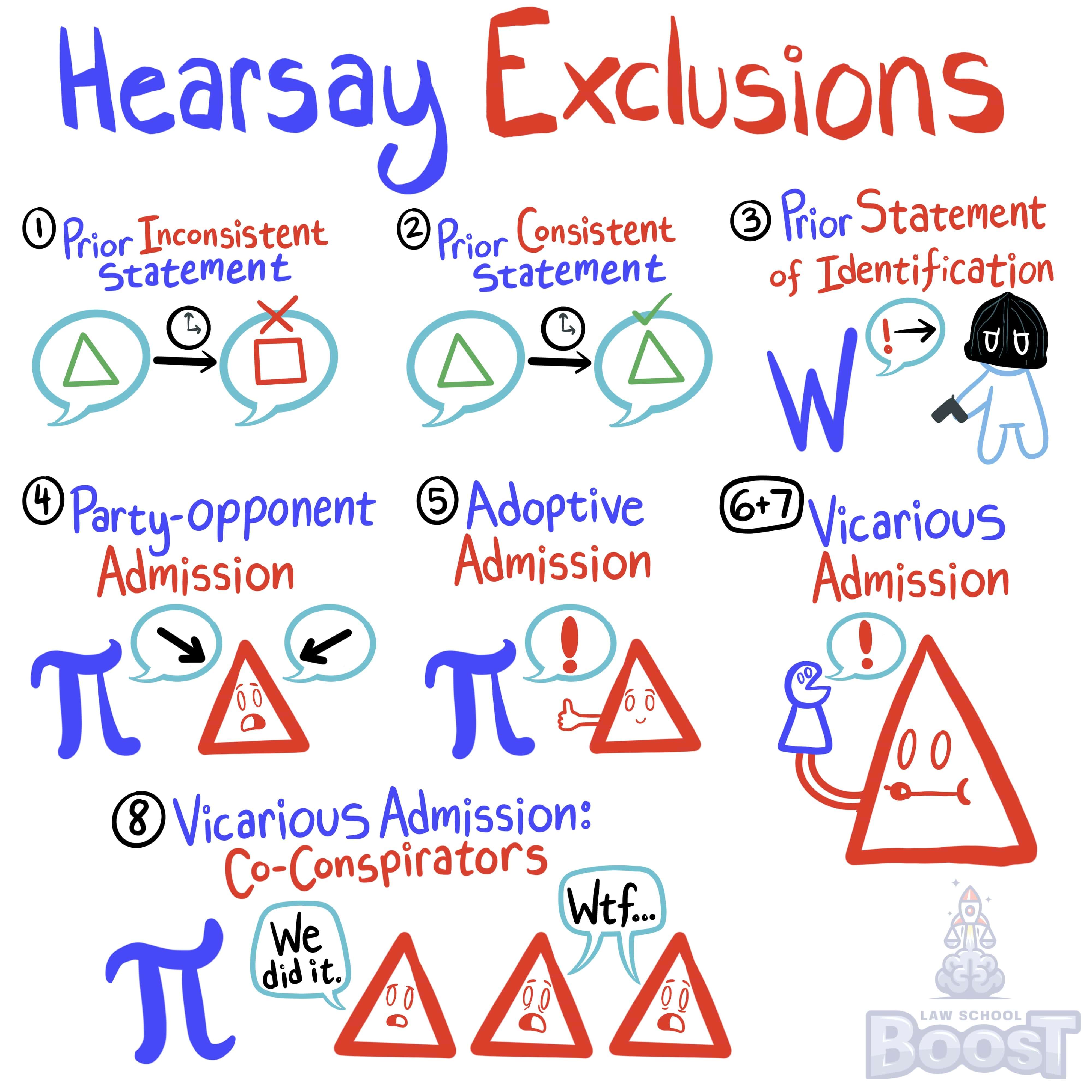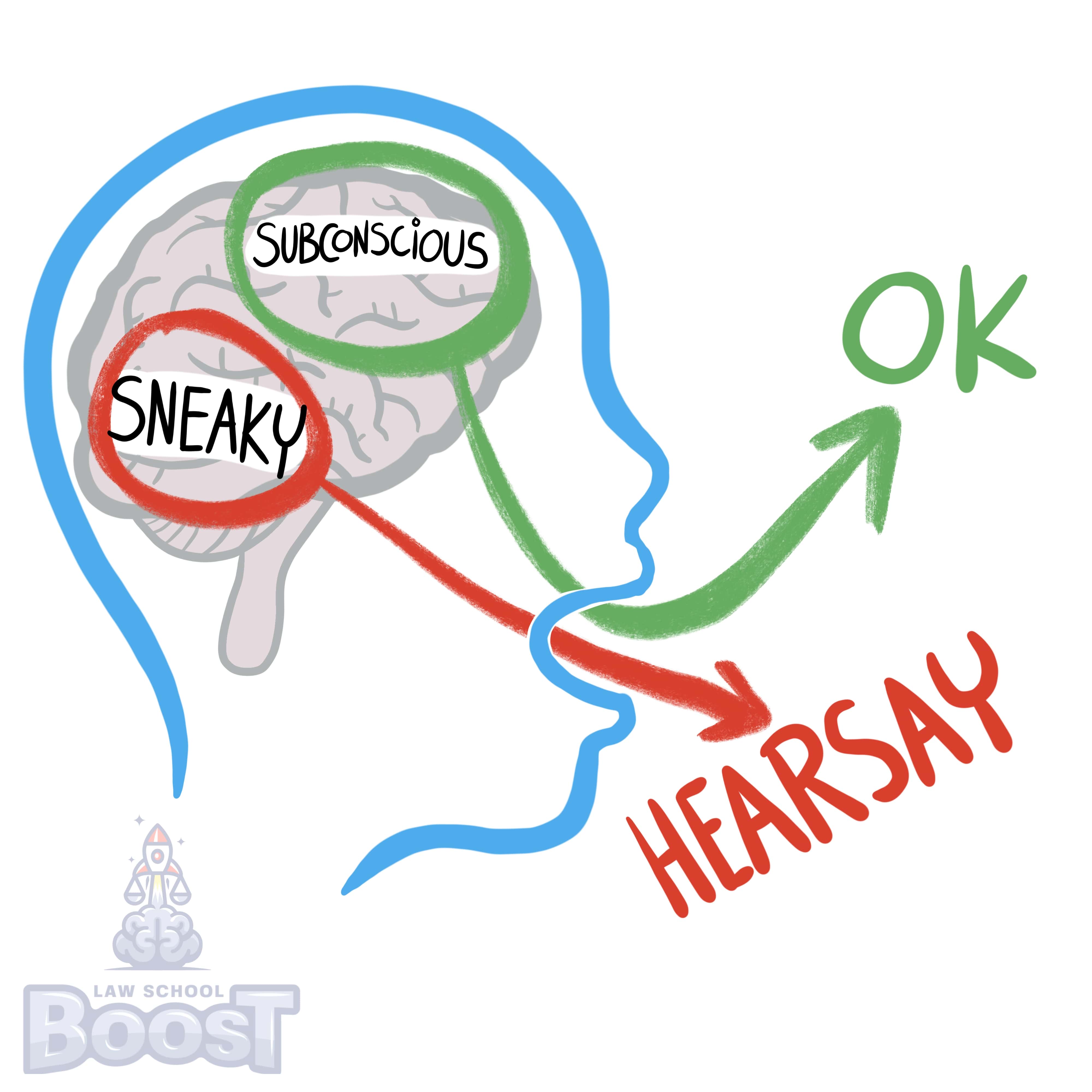🦅
Federal Evidence • Hearsay Exclusions
EVID#032
Legal Definition
A vicarious admission from a co-conspirator is a hearsay exclusion. It is a statement by one conspirator made in furtherance of conspiracy to commit crime or civil wrong, made during the conspiracy.
Plain English Explanation
A vicarious admission from a co-conspirator means when one person in a group planning to do something wrong says something related to their plan, it can be used in court as if everyone in the group said it. Think of it like this: if you and your friends plan together to start a secret club that breaks school rules, and one of your friends talks about the plan when you're not around, it's like you all agreed to what was said. This is because when people join in a plan (especially a bad one), the law assumes that they all agree with what any of them say about it, as long as it's related to their shared plan. This rule helps judges and juries understand the whole story of what the group planned to do together, even if not everyone in the group was caught talking about it.
Hypothetical
Hypo 1: Bob and Sam plan to commit insurance fraud by faking a theft at their business. During the planning, Bob emails another conspirator, not knowing the police are monitoring. In the email, Bob outlines how they'll pretend the equipment was stolen. During the trial, this email is used as evidence against both Bob and Sam. Result: Bob's email, detailing the fraud plan, is treated as a vicarious admission from a co-conspirator because it was made in furtherance of their conspiracy. Since Sam was part of the conspiracy, the statement implicates him too, even though he didn't write the email.
Hypo 2: Bob and Sam are plotting to illegally dump waste to avoid disposal fees. While discussing their plans over the phone, which is being tapped by the police, Bob says they will dump the waste on Saturday night. This statement is introduced in court. Result: Since Bob's statement about dumping the waste was made during and in furtherance of their conspiracy, it's admissible against Sam as well, linking him to the planned illegal activity.
Hypo 3: Bob and Sam, business partners, are secretly selling stolen goods. In a recorded conversation between Bob and a buyer, Bob mentions that Sam knows where the goods are stored. This recording is later used in court. Result: Bob's mention of Sam's involvement with the storage of the stolen goods, made during the conspiracy, acts as a vicarious admission implicating Sam in the criminal activity.
Hypo 4: Bob and Sam are in a conspiracy to commit fraud. Three months after their plan was foiled and they ceased all related activities, Bob makes a statement to a new business partner that he once planned a fraud scheme. Result: This statement by Bob is not admissible as a vicarious admission against Sam because it was made after the conspiracy had ended, and thus it was not in furtherance of the conspiracy.
Hypo 2: Bob and Sam are plotting to illegally dump waste to avoid disposal fees. While discussing their plans over the phone, which is being tapped by the police, Bob says they will dump the waste on Saturday night. This statement is introduced in court. Result: Since Bob's statement about dumping the waste was made during and in furtherance of their conspiracy, it's admissible against Sam as well, linking him to the planned illegal activity.
Hypo 3: Bob and Sam, business partners, are secretly selling stolen goods. In a recorded conversation between Bob and a buyer, Bob mentions that Sam knows where the goods are stored. This recording is later used in court. Result: Bob's mention of Sam's involvement with the storage of the stolen goods, made during the conspiracy, acts as a vicarious admission implicating Sam in the criminal activity.
Hypo 4: Bob and Sam are in a conspiracy to commit fraud. Three months after their plan was foiled and they ceased all related activities, Bob makes a statement to a new business partner that he once planned a fraud scheme. Result: This statement by Bob is not admissible as a vicarious admission against Sam because it was made after the conspiracy had ended, and thus it was not in furtherance of the conspiracy.
Visual Aids


Related Concepts
Does California recognize the hearsay exclusion of a vicarious admission from a principal-agent?
How does the prior inconsistent statement hearsay exclusion differ in California?
How does the prior statement of identification hearsay exclusion differ in California?
What is an admission by a party-opponent?
What is an adoptive admission?
What is a prior consistent statement?
What is a prior inconsistent statement?
What is a prior statement of identification?
What is a vicarious admission from an authorized spokesperson?
What is a vicarious admission from a principal-agent?


